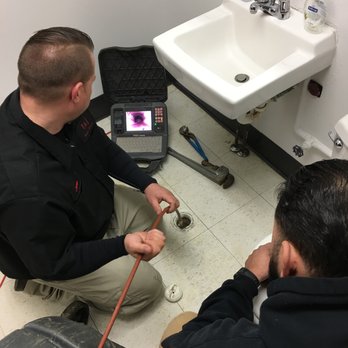
These websites can be used to find qualified contractors for home improvement projects. These websites allow you to view the license, financial responsibility, address, and bond number for a contractor. These tools will help you ensure that your home improvements are of the highest quality. They are also easy to use!
License check
Always check the license of any contractor you are considering hiring to work on your home improvement project. Unlicensed professionals can cause serious damage to your home and property. Hiring unlicensed contractors is not only bad for your property, but it also leaves you without recourse if your project goes wrong. An additional protection you can get from a licensed professional is passing a background check and a business administration exam. Unresolved contracts are not acceptable for a licensed contractor.

You can perform a license verification in many ways. You can contact the Department of Labor for information about what licensing requirements your contractor must comply with in order to do construction work. The department's website provides links to all state licensing requirements. Additional licensing requirements may be required in certain counties. For example, in New York State, contractors are referred to as "general contractors," "home improvement contractors," and "subcontractors." Electrical, plumbing, home appliance, and electronics contractors are required to apply for a license through the Suffolk County Department of Labor.
Verify contractor's financial accountability
Be sure to verify that the contractor you are hiring is financially sound. There are a few ways to do this. Talk to your bank or other financial institutions. Referrals may also be available from consumer protection and building departments. A good resource for finding reputable contractors is the Better Business Bureau.
Verify the contractor's bond #
Before you hire a construction contractor, check their license and bond numbers. The Better Business Bureau is an excellent resource to check licenses, and you can verify a contractor's bond number by visiting their website. It is a good idea also to request a copy or their certificate if insurance. These documents will protect both contractors and homeowners.

A contractor's payment and performance bond must meet state and surety requirements. The Michigan Department of Insurance and Financial Services has an online database that lists licensed insurance providers. This is a great place to compare insurance rates. However, it can be a bit confusing to look through every single company. The last field can be your starting point.
FAQ
When do I have the obligation to pay for the service/contractor
The type of service is dependent on how much you pay. If you hire a contractor for a roof installation, payments would be made as soon as the work is completed. You might pay only after you receive and test the product if it is a product purchased from a supplier like a kitchen range cooker.
Are there any ways I can prepare for negotiations before I go?
Yes!
There are many ways to prepare yourself for negotiations.
One option is to set out the terms of the agreement in writing
What is a Service Contract Agreement?
An agreement between two parties for the provision of services is called a Service Contract Agreement (SCA). The SCA specifies the services to be provided, their cost, time and effort required, who will pay for them, and when they should start. It also stipulates what happens if either party breaches its obligations under the agreement.
Statistics
- (v) Place or places of performance of the prime contract and first-tier subcontracts estimated at $10 million or more, if known. (acquisition.gov)
- Depending on the client's trustworthiness and financial stability, a deposit is usually 10 to 50% of the total contract amount. (lawdepot.com)
- Reasonable late fees go up to 25% per year on unpaid sums. (lawdepot.com)
- (d) Contractor disputes related to compliance with its obligation shall be handled according to the rules, regulations, and relevant orders of the Secretary of Labor (see 41 CFR60-1.1). (acquisition.gov)
- (ii) Name, address, and telephone number of each proposed first-tier subcontractor with a proposed subcontract estimated at $10 million or more. (acquisition.gov)
External Links
How To
What should a service arrangement include?
Every business relationship should have a Service Agreement (SA). It outlines what you expect from each other and how you will achieve this. The SA also defines when and where you expect the other party to deliver on its contractual obligations.
A successful SA must include these key elements:
-
Both parties will agree to the scope of work.
-
Information about payment terms, including the start and end dates for delivery of goods/services.
-
An agreed price for your project.
-
Any additional costs such as VAT etc.
-
Discuss any other matters.
-
Who will take responsibility if there is an error in the job?
-
How disputes are resolved
-
What happens if one party breaches the contract.
-
What happens in case of dispute.
-
When does the contract come into effect?
-
What happens when one of the parties doesn't perform?
-
How long do you have to pay invoices?
-
Who pays for things such as travel expenses?
-
Where the money came from.
-
What happens if the client changes his mind about the project?
-
What happens if the supplier isn't there?
-
Who has permission to view the site during construction
-
What happens if the customer cancels the project.
-
What happens when the product is defective?
-
What happens if a manufacturer refuses to provide parts?
-
What happens when the equipment stops working?
-
What happens when the project takes longer to complete?
-
What happens if the work isn't completed within the agreed timescale?
-
What happens to the project if it isn't up-to-standard?
-
What happens when the cost is too high?
-
What happens when the materials are not delivered in time?
-
What happens if the material arrives broken?
-
What happens if the products are not up to standard.
-
What happens when the job is cancelled before completion?
-
What happens when the company goes under?